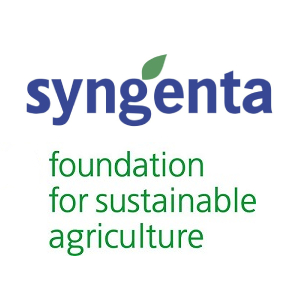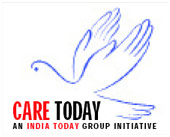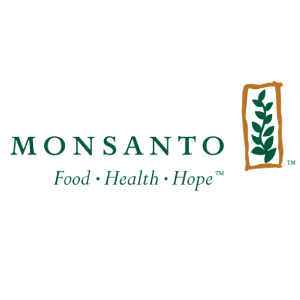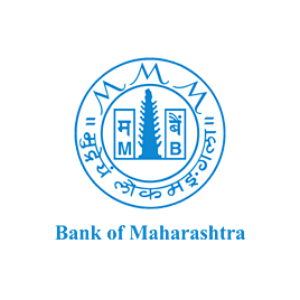Partners

NABARD – National Bank for Agriculture and Rural Development: is set up as an apex Development Bank with a mandate for facilitating credit flow for promotion and development of agriculture, small-scale industries, cottage and village industries, handicrafts and other rural crafts. It also has the mandate to support all other allied economic activities in rural areas, promote integrated and sustainable rural development and secure prosperity of rural areas.

NCDC-National Cooperative Development Corporation: The National Cooperative Development Corporation (NCDC) was established by an Act of Parliament in 1963 as a statutory Corporation under the Ministry of Cooperation. Planning, promoting and financing programmes for production, processing, marketing, storage, export and import of agricultural produce, food stuffs, certain other notified commodities e.g. fertilisers, insecticides, agricultural machinery, lac, soap, kerosene oil, textile, rubber etc., supply of consumer goods and collection, processing, marketing, storage and export of minor forest produce through cooperatives, besides income generating stream of activities such as poultry, dairy, fishery, sericulture, handloom etc.

Indian Oil Corporation Ltd: Indian Oil is a central public sector undertaking under the ownership of Ministry of Petroleum and Natural Gas, Government of India. It is headquartered in New Delhi. It is a public sector undertaking whose operations are overseen by the Ministry of Petroleum and Natural Gas. Indian Oil is ranked 142nd on the Fortune Global 500 list of the world's biggest corporations as of 2022. It is the largest government owned oil producer in the country, with a net profit of $6.1 billion for the financial year 2020-21. Indian Oil and NCT have, in furtherance of the Purpose, indicated a desire to collaborate upon and mutually explore certain opportunities in areas, including but not limited to: Exploring the opportunities in the field biodiesel production from indigenious feedstock like Tree Born Oil Seeds(TBOs), production of non-edible oil seed feedstock for biodiesel production.

RMK- Rashtriya Mahila Kosh: Since the 1950s, various governments in India have experimented with a large number of grant and subsidy based poverty alleviation programmes. Studies show that these mandatory and dedicated subsidised financial programmes, implemented through banking institutions. The National Credit Fund for Women or the Rashtriya Mahila Kosh (RMK) is working exclusively for poor women. Its loans are available solely and entirely to this target group.

WTO: On the occasion of World Toilet Day on November 19, we are happy to update you about our effort in one of our ongoing initiatives. On the second day of the 13th India Today Conclave in March, motivated by a donation of Rs 12 lakh from superstar Salman Khan, socially conscious participants pledged their support to construct toilets for needy households to promote health, hygiene and women's safety. Participants voiced their strong support for the cause espoused by Jack Sim, founder of the World Toilet Organization (WTO), also famously known as "Mr Toilet". Mr. Sim, who was present at the conclave, also committed his support to the endeavour. Care Today Fund, the Corporate Social Responsibility initiative of the India Today Group, started the 'Clean Toilet Fund' and created a dedicated account to deposit the donation. With WTO as its knowledge partner, Care Today is partnering with Nageshwara Charitable Trust, Nagpur, Gram Vikas, Bhubaneswar, and Nanhi Chhaan Foundation, Gurgaon, to construct 700 toilets. WTO is helping with the design of the toilets and is monitoring the progress of the programme. The Care Today Fund has received Rs 74.9 lakh as donations and has also mobilized resources internally. C. Balaji Singh, executive director, Care Today, recently visited Nagpur to monitor the ongoing work. Women beneficiaries told him that personal toilets will be of great relief for them as well as the elderly. The need for toilets is huge in India. Care Today Fund acknowledges We’re a non-profit organization that builds homes and provides housing-related services to low-income, marginalized families across India. Habitat India began operations in 1983 and is today one of Habitat’s largest programmes in the Asia pacific region. It works in partnership with local, grassroots, non-governmental organizations, and micro finance institutions throughout India to provide decent housing. Every year, tens of thousands of families are helped to acquire new homes or improve existing ones, as well as to access financial and technical assistance. Till date, we have served over 54,000 families across 17 states in India, and hope to support 100,000 families in their dream of living in a safe and decent house by 2015 under India BUILDS a World of Hope Campaign. Habitat India under its ‘Sensitize to Sanitise campaign has taken up the mission to build 100,000 sanitation units and raise awareness on the needs of proper sanitation in India

HUL : Lack of access to hygienic sanitation is one of the key causes of high incidence of diarrhoea in India, particularly among children. The World Health Organization and United Nations Children’s Education Fund (UNICEF) estimate that there are more than 620 million people practicing open defecation due to lack of access to proper sanitation. 60% of all open defecation is in India. As per the World Bank report, 53 per cent of Indian households defecate in the open. Domex, the leading toilet cleaner brand of Hindustan Unilever Limited (HUL), announced the launch of Domex Toilet Academy (DTA) in November 2013. The academy aims to build 24,000 toilets by 2015 in areas faced with the problem of open defecation and where people do not have access to improved sanitation. As a brand Domex helps kill all known toilet germs, ensuring that toilets are free of diseases & safe to use. Therefore, we believe that we have an important role to play in making our communities open defecation free. According to the 2011 census data, the percentage of households in rural India with access to toilets is lesser compared to those with access to telephones. This situation particularly affects children and women. More than 600,000 children in India do not reach the age of five due to diarrhoea and pneumonia - almost 30% of the global total. The Domex Toilet Academy (DTA) has reached 850 people in 2013. The project is based on a community partnership model to make it scalable and self sustainable. We have partnered with eKutir Rural Management Services Private Limited, a well established social enterprise with strong execution capabilities in the area of sanitation for this project. DTA and eKutir have identified and trained 40 local micro-entrepreneurs who are executing the project in their local communities by supplying and installing latrines. DTA provides the seed capital to these entrepreneurs through eKutir to start up their activity, and also helps with initial operational costs for the execution of the project.

Handloom Department: The handloom sector is known for its heritage and the tradition of excellent craftsmanship. It provides livelihood to millions of weavers and craftsperson. The industry has not only survived but also grown over the decades due to its inherent strengths like flexibility of production in small quantities, openness to innovation, low level of capital investment and immense possibility of designing fabrics. Government of India has continued to accord priority to this sector. An imperative step has been taken by the office of Development Commissioner – Handlooms, Ministry of Textiles, and Government of India, to promote and develop its exclusiveness for the global market.

Syngenta Foundation India: operations in India began in 2005. Their aim is to help resource-poor farmers apply improved production technologies for better productivity and higher incomes. Agriculture is the single largest productive sector in the Indian economy. It accounts for about a quarter of GDP and employs two-thirds of the total workforce. Indian agriculture is characterized by smallholders: about 80% of holdings are less than 2 hectares. At the other end of the scale, 25% of the farmers produce 60% of the agricultural output. Syngenta Foundation India (SFI) has investigated a range of models designed to improve the farming practices and livelihoods of resource-poor smallholders. SFI confirmed that the most important cause of low farm productivity, and therefore of rural poverty, is lack of knowledge of improved agronomic techniques.

Agricultural Department: The need to grow more food was felt during the 19th Century because of the increasing pressure of population. According to the recommendation of Famine Commission (1881), Agriculture Department was established in 1883. Work started with the aim of helping the rural community to achieve higher productivity in agriculture. Agriculture and Land Records Departments were functioning together till 1907. Agriculture Department took up various land development activities with the enactment in 1942 and subsequent enforcement of Land Development Act in 1943. For the first time in 1943, the then Government prepared a comprehensive Agriculture Policy considering the problems in agriculture and allied sectors. According to this policy, emphasis was given on use of water as irrigation for agricultural crops. The post independence period from 1950 to 1965 is recognized as pre Green Revolution period. During this period several schemes were launched to boost growth of agriculture sector. Production of quality seeds through Taluka Seed Farms started during 1957. Emphasis was given on increase in irrigated area along with cultivated area during this period. A special campaign was launched in 1961-62 to encourage use of chemical fertilizers.

State Bank of India caters to the needs of agriculturists and landless agricultural labourers through a network of 8750 rural and semi-urban branches. Apart from the branches, there are 428 Agricultural Development Branches (ADBs) which also cater to agriculturists. Our branches have covered a whole gamut of agricultural activities like crop production , horticulture , plantation crops, farm mechanization, land development and reclamation, digging of wells, tube wells and irrigation projects, forestry, construction of cold storages and godowns, processing of agri-products, finance to agri-input dealers, allied activities like dairy , fisheries, poultry, sheep-goat, piggery and rearing of silk worms. To give special focus to agriculture lending Bank has also appointed agri specialists in various disciplines to handle projects/ guide farmers in their agri ventures.

TERI (The Energy and Resources Institute): was formally established in 1974 with the purpose of tackling and dealing with the immense and acute problems that mankind is likely to face within in the years. Over the years the Institute has developed a wider interpretation of this core purpose and its application. Consequently, TERI has created an environment that is enabling, dynamic and inspiring for the development of solutions to global problems in the fields of energy, environment and current patterns of development, which are largely unsustainable. The Institute has grown substantially over the years, particularly, since it launched its own research activities and established a base in New Delhi, its registered headquarters. The central element of TERI’s philosophy has been its reliance on entrepreneurial skills to create benefits for society through the development and dissemination of intellectual property. The strength of the Institute lies in not only identifying and articulating intellectual challenges straddling a number of disciplines of knowledge but also in mounting research, training and demonstration projects leading to development of specific problem-based advanced technologies that help carry benefits to society at large.

Zila Panchayat Chhindwara M.P : Towards up lifting of villages.Ministry of Rural Development Department of Rural Development & Panchayati Raj Madhya Pradesh, India.

The Environmental Planning & Coordination Organisation (EPCO) was established by the Housing and Environment Department of the Government of Madhya Pradesh in 1981, its foundation stone was laid by Smt. Indira Gandhi, in the 50 acre "Paryavaran Parisar". Over the years, EPCO has steadily grown to become the State's premier organization in the field of environment related matters. It has worked closely with the State Government on various projects; yet it has established its own identity as an autonomous organization. It is a think-tank for environmental matters, but is also project oriented. His excellence the governor of MP is the President of the organization where as Hon’ble Chief Minister and Hon’ble Minister of Housing & Environment Department are Vice Presidents, Principal Secretary Housing and Environment Department is the Director General and Chairman of the Governing Council of EPCO. Executive Director is the executive head of organization. Environmental Planning and Coordination Organization (EPCO) is a unique organization in terms of the foresight and the width of its mandate. In the last 27 years it has also witnessed rapid developments in the field of environment. Over the last 27 year EPCO has touched upon virtually every kind of work that is related to the field of environment. It has carried out pioneering work in creation of environmental awareness and focusing attention on environmental problems of the State.

Central Madhya Pradesh Gramin Bank was constituted on 08-10-2012 under Regional Rural Banks Act, 1976, by amalgamating erstwhile Satpura Narmada Kshetriya Gramin Bank, Vidhisha Bhopal Kshetriya Gramin Bank and Mahakaushal Kshetriya Gramin Bank.The Head Office of the Bank is situated in Chhindwara.Central Madhya Pradesh Gramin Bank, the biggest Regional Rural Bank of Madhya Pradesh, serve the people of the State through the strong network of 423 Branches spread over in 25 districts of MP viz. Hosangabad, Mandla, Umaria, Ratlam, Bhind, Gwalior, Raisen, Balaghat, Seoni, Anuppur, Mandsaur, Morena, Datia, Harda, Dindori, Shahdol, Betul, Neemuch, Sheopur, Chhindwara, Vidisha, Bhopal, Katni, Jabalpur and Narsinghpur. Our bank is sponsored by Central Bank of India. 50% of its shares are held by Government of India, 35% by Central Bank of India and 15% by Government of Madhya Pradesh. Besides lending to agriculture / allied sectors and MSME, our bank offers a bouquet of Retail Loan schemes to suit the needs of various target clientele and the general public. All the branches in 25 districts are monitored for efficient customer services by 8 Regional/Special Offices situated at Chhindwara, Hoshangabad, Gwalior, Mandsaur, Mandla, Shahdol, Vidhisha and Jabalpur. The business affairs of the Bank are managed by the Board of Directors consisting of Chairman and 8 directors.

Habitat for Humanity India is a non-profit organization that builds homes and provides housing-related services to low-income, marginalized families across India. Habitat India began operations in 1983 and is today one of Habitat’s largest programmes in the Asia pacific region. It works in partnership with local, grassroots, non-governmental organizations, and micro finance institutions throughout India to provide decent housing. Till date, we have served over 54,000 families across 17 states in India, and hope to support 100,000 families in their dream of living in a safe and decent house by 2015 under IndiaBUILDS a World of Hope Campaign. Our Vision is "A world where everyone has a decent place to live"

eKutir, registered as eKutir Rural Management Services Private Limited, is a socially focused venture engaged in innovating new products, services, and sustainable model at the BoP (Base of Pyramid) market. Products & services created through innovations are ideated, tested in the field, improved, validated, packaged and released to the BoP markets.

Care Today Fund, the Corporate Social Responsibility initiative of the India Today Group, started the “Clean Toilet Fund' and created a dedicated account to deposit the donation. With WTO as its knowledge partner, Care Today is partnering with Nageshwara Charitable Trust, Nagpur, Gram Vikas, Bhubaneswar, and Nanhi Chhaan Foundation, Gurgaon, to construct 700 toilets. WTO is helping with the design of the toilets and is monitoring the progress of the programme. The Care Today Fund has received Rs 74.9 lakh as donations and has also mobilised resources internally. The need for toilets is huge in India. Care Today Fund acknowledges the contribution of donors for this noble cause and invites participation of interested individuals and companies.

Monsanto is a sustainable agriculture company. We deliver agricultural products that support farmers all around the world. We are focused on empowering farmers—large and small—to produce more from their land while conserving more of our world's natural resources such as water and energy. We do this with our leading seed brands in crops like corn, cotton, oilseeds and fruits and vegetables. We also produce leading in-the-seed trait technologies for farmers, which are aimed at protecting their yield, supporting their on-farm efficiency and reducing their on-farm costs. We strive to make our products available to farmers throughout the world by broadly licensing our seed and trait technologies to other companies. In addition to our seeds and traits business, we also manufacture Roundup® and other herbicides used by farmers, consumers and lawn-and-garden professionals. Monsanto could not exist without farmers. They are our customers--the lifeblood of our company. More important, they are the support system of the world's economy, working day in and day out to feed, clothe and provide energy for our world.

Bank of Maharashtra is one of the leading banks of India. Since the establishment of the bank in early nineties, it has developed its operations all over India. The bank has its presence in almost all parts of India. Apart from offering the banking services, the bank has also extended its services for the betterment of the society. The bank has introduced many special Rural Development programmes as a part of its social responsibility. The banking services from Bank of Maharashtra are also extended to the rural and urban population of India.
